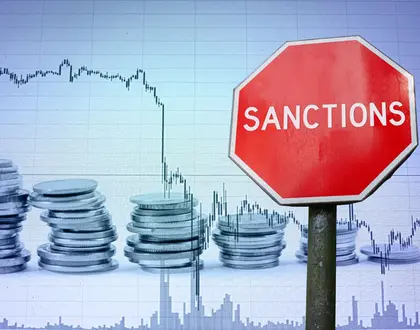As Russia’s war of aggression against Ukraine stretches into its third year, the international community finds itself at a critical juncture, grappling with decisions crucial to Ukraine’s self-defense. In Europe and the United States, political leaders face the daunting task of determining the level of aid and support they can provide to bolster Ukraine’s resilience against the continuing onslaught.
The European Union has already taken a significant step forward by committing a substantial $54 billion in aid over the next four years, aimed at strengthening both Ukraine’s military capabilities and its struggling economy. In the United States, however, the situation remains uncertain. As we write this, Congress has yet to approve the Biden administration’s request for continued American assistance.
JOIN US ON TELEGRAM
Follow our coverage of the war on the @Kyivpost_official.
Amidst these deliberations over aid, there is a growing consensus among policymakers that merely providing financial support to Ukraine is not enough. To truly address the root of the problem – Russia’s aggression – there must be a concerted effort to reinforce and expand existing sanctions aimed at crippling Russia’s war effort.
Both Europe and the United States have already implemented measures to curb Russia’s access to crucial state revenues and hinder the flow of weapons-related technology. However, it is widely acknowledged that these efforts must be intensified and broadened to inflict significant pressure on the Kremlin and further limit its war-making ability. Much more can be done to implement and expand these measures. In a recent report, we outline several ways for the US and its allies to constrain the Kremlin’s capacity for continued aggression and occupation.

US Must Address Russian Disinformation to Strengthen US Election Integrity
In the face of ongoing conflict and geopolitical tensions, decisive action is imperative.
In particular we recommend that countries imposing sanctions prioritize more robust enforcement of current restrictive measures. The priority is to tighten export controls of designated sanctioned goods that Russia is using for its military actions. This means additional personnel and institutional resources for relevant agencies that monitor enforcement and track down sanctions violations. It also includes the application of greater pressure on individuals and companies that profit from war and are helping Russia obtain prohibited goods.
The EU, the US, and other democracies must cooperate to make sure that the restrictions imposed on the Kremlin are fully implemented. This requires punitive mechanisms that deny access to markets and financing for those who conduct restricted trade with Russia.
Furthermore, there is a need for additional mechanisms to mandate the documentation of transactions involving Russia. Both sellers and purchasers should be required to provide certification of price and product content, with this trade information being accessible to data analytic centers where it can be processed and disseminated among sanctions enforcement officials. The G7 countries have taken a step in this direction by recently mandating oil shippers to provide more frequent and thorough documentation of the content and price of their cargoes.
Similarly, more can – and should be done – for holding accountable the mushrooming network of unethical trade and companies that facilitate Russia’s efforts at bypassing sanctions. New and old companies that exist solely to serve as intermediaries between the West and Russia and move sanctioned goods between the two have to be punished – and the list of these companies needs to be updated as a way to discourage more criminal trade from taking place in the future.
The proposed measures for bolstering sanctions necessitate a commitment of additional resources, primarily for enhancing monitoring and enforcement by EU and US trade and finance agencies. Additionally, economic incentives may need to be provided to countries along Russia’s border to ensure strict enforcement of export controls. New mechanisms of this sort dramatically improved cooperation with sanctions in cases from Yugoslavia in the 1990s and more recently in sanctions imposed against Libya and Iran.
While implementing these measures may require upfront costs, they are dwarfed by the immense human and economic toll of war. Various studies indicate the sanctions of the past two years have led to a significant dysfunction in the Russian economy. Stronger monitoring, enforcement and tightening of these measures and more effectively enforced sanctions will increase this intended damage and are crucial elements of the multifaceted response by Western states to support Ukraine’s self-defense and defund Russia’s war machine.
In the face of ongoing conflict and geopolitical tensions, decisive action is imperative. By standing firm in their support for Ukraine and escalating pressure on Russia through strengthened sanctions, political leaders in the West can demonstrate their unwavering commitment to defending the principles of sovereignty, territorial integrity, and international law.
There is no viable alternative to supporting Ukraine. The potential of the Russian war spilling to other parts of Europe is high, and the only way to prevent this is by helping Ukraine – and weakening Russia’s war effort. Failure to do so will be extremely costly. Making sanctions work is one of the ways of contributing to Ukraine’s victory in the war and the weakening of Russian militarism.
The views expressed in this opinion article are the author’s and not necessarily those of Kyiv Post.
David Cortright is chair of the Board of Directors of the Fourth Freedom Forum and professor emeritus at the University of Notre Dame’s Kroc Institute for International Peace Studies. He is the author or editor of more than 20 books on issues of peace, conflict prevention, and disarmament.
Anna Romandash is the Fourth Freedom Forum’s first Howard S. Brembeck Fellow. She is an award-winning journalist from Ukraine and is an author of Women of Ukraine: Reportages from the War and Beyond.
You can also highlight the text and press Ctrl + Enter






